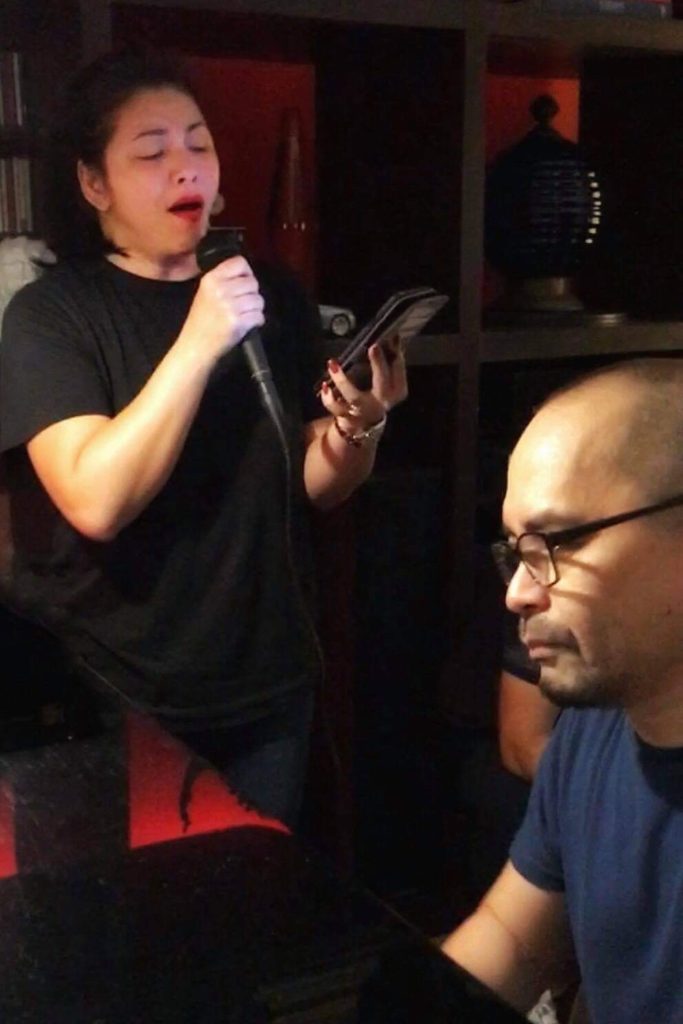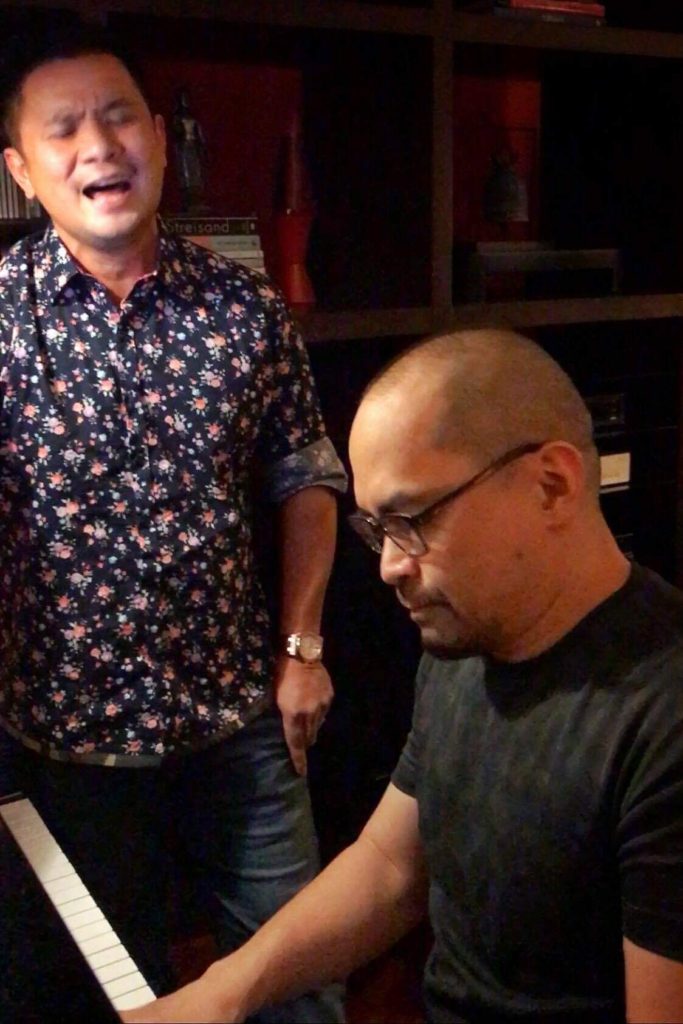Reina Lynn G. Antonio, MD, FPCP, FPSN

“I don’t want to be defined by my profession… only. I maybe a Doctor, a Nephrologist, but I also have a life outside the hospital.” -Dr. Raffy Jocson.
Dr. Vincent Rafael A. Jocson, the Head of the Renal and Metabolic Division of the Philippine Heart Center, was actually trained in Classical piano.
He started at the age of 9 years old and was being groomed to become a Virtuoso pianist back then, that practicing meant six to eight hours of piano playing every day. He had two solo piano recitals at the Abelardo Hall in UP Diliman.
But he was also into other genre of music like pop, jazz and gospel. He performed for their church with the other Choir members every weekend and he secretly played pop music by ear as he knew his Classical piano teacher or coach would disapprove of it.
And Dr. Jocson had a gift to create music.
He was composing Liturgical and Christmas songs, but when he won first prize in the Interschool Piano Competition held in La Salle Greenhills in 1985, his professional career in music composition took off.
He reconnected with his close friend in OB Montessori, singer-composer Mr. Rannie Raymundo, whom he met at the backstage, and they began collaborating on music since then. That when their friend Mr. Dingdong Avanzado launched his music career, “Ikaw Lamang” (music by Dr. Jocson and lyrics by Mr. Raymundo) was the first single he released.
Dr. Jocson then ventured on his own and gave another singer, Mr. Louie Heredia, his songs “Wala sa Pangarap” and “O Giliw Ko”, which became very popular in 1988, reaching triple platinum in sales as reminisced by Dr. Jocson.
Back then, while composing music, Dr. Jocson was already taking his pre-medicine course, which he found demanding that he decided to give up on his Classical piano lessons.
He was already committing himself to the Medical track. So that when he finally entered Medical school, he gifted himself with a Stethoscope and a BP apparatus from his earnings as a music composer.
Dr. Jocson admitted that sadly, the music industry was not really financially rewarding. He recalled the royalties he received were about 10 cents per recording and that what truly made him happy was hearing his composition being played on the radio. And it could also be very frustrating especially when recording companies would alter the song beyond recognition just to make it sale-able. Sometimes to the point of compromising the soul of the music or the essence of the song’s creation.
Hence, to make music is purely passion.
But Dr. Jocson had no regrets when he left that industry because music was always part of him.
During residency training in Internal Medicine at the Veterans Memorial Medical Center, he was part of the music band “On Call”. Together with his other four co-residents, who were also very talented doctors, Dr. Jocson performed not only in the gatherings in their department or the hospital but had ‘gigs’ in bars around Quezon city like Chatterbox, Freedom and Kampo back then. Dr. Jocson was the keyboardist and was in charge of the group’s repertoire and musical arrangements. He admitted he had a happy residency training because of it. And though the members had gone their separate ways, because of their medicine practice, they would still organize performances when they get together.
And now as a consultant, Dr. Jocson would regularly still meet up with his other talented friends like Mr. Ogie Alcasid and his wife, Miss Regine Velasquez, Mr. Dingdong Avanzado to name a few, and just to destress and sing freely. They called it ‘Piano-oke’ night sessions because they would sing to Dr. Jocson’s piano accompaniment for pure fun.
Even just watching them perform in that close knitted environment was relaxing, unwinding and stress reducing. They were really amazing.
And Dr. Jocson admitted he plays better when he is ‘in the mood’ so when he thought about it, piano playing as a career might not really work for him after all.
And so like everyone else, Dr. Jocson considered music as his outlet, a form of escape, especially during these challenging times. He also went back to painting and photography during the quarantine. Recollection of using films and carefully developing them in dark rooms brought him back to the days when he was a member of Camaraderie in UST when he used to exhibit his works.
I just hope Dr. Jocson resumes composing music because sadly, gone are the days that songs were made like he and his contemporaries did.









